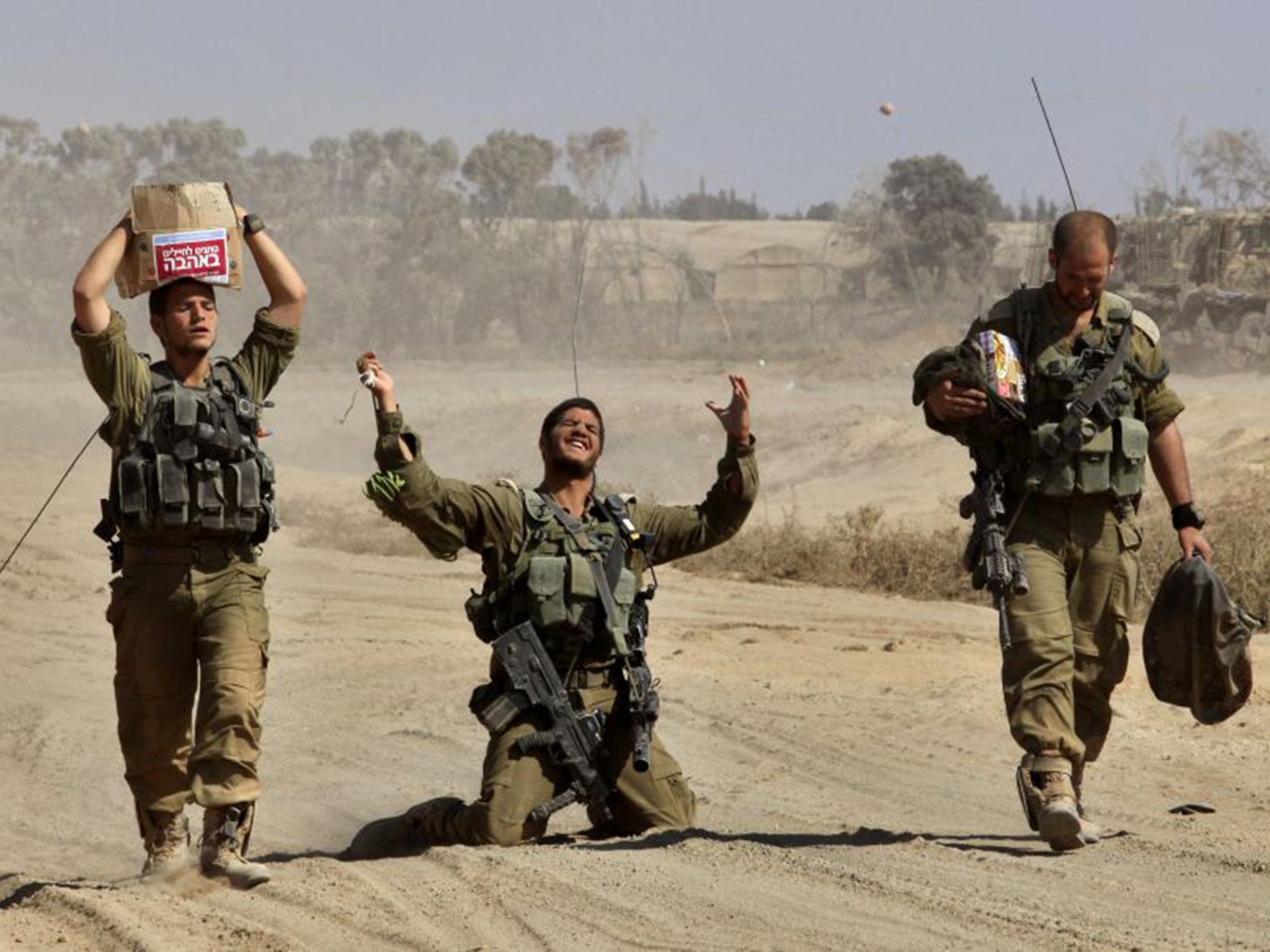UN Gaza report: Attacks from Israel and Hamas on findings are exactly what you would expect
'Morally flawed', say Israelis. Both 'victim and executioner' says Hamas

Monday’s long-awaited UN report into last summer’s Gaza war, released following an extensive investigation, was immediately attacked by both sides in the conflict. The Israelis charged that it was “politically motivated and morally flawed”, while Hamas complained that it was equating “the victim and executioner”.
This was to be expected. Looking into 50 days of relentless violence – of air strikes and rocket attacks, rage and anguish, all under a horrified international gaze – could not be anything but controversial.
Almost all aspects of the conflict had led to bitter dispute, including the precise final tally of the bloodletting: 2,251 Palestinians killed and 11,231 injured in Gaza, 73 Israelis killed and 1,600 injured across the border.
Both Hamas and the Israeli military have been accused of multiple violations of international law which could amount to war crimes.
The Israelis hold that many of the Palestinian dead said to be civilians were actually fighters. Again, the figures are in dispute, but the UN says that among the dead were 551 children; those of us reporting from Gaza saw their broken bodies being pulled out of the rubble, young boys and girls who were not to survive their terrible injuries.
To what extent were these children, and other civilians, deliberately put in harm’s way by Hamas? Or were they killed because of Israeli indifference to inflicting casualties? And what about Israeli injuries and deaths – how much credence is there to Hamas claims that they only targeted the Israeli military?
Hamas in pictures
Show all 10It is true Israel warned of impending attacks, through leaflet drops and “knocks on the roof” by non-explosive missiles that warned residents they had 10 minutes to get out. But the grim reality was that since Gaza is a strip just 26 miles long and five miles wide, those fleeing often simply ended up on another, steadily constricting, killing ground.
Hamas fighters did indeed move among civilians. But unlike during previous Gaza conflicts, they tried not to be spotted by journalists. There were fleeting glimpses: during a temporary ceasefire in Shuja’iya district, I saw two men carrying out what appeared to be a body wrapped in a shroud. On closer inspection they turned out to be fighters, the “body” a machine-gun wrapped in a sheet.
Hamas also fired rockets from civilian areas, but with 1.7 million people crammed into such a small space, no one could ever be very far from people. However, the group’s claim that they were only targeting the Israeli military does not bear scrutiny. Most of the rockets fired by them and by Islamic Jihad did not have guidance systems. There is strong suspicion that a devastating blast that killed 10 children at the Beach camp in Gaza City was from a Hamas rocket which had fallen short, and was not the work of Israelis.
The inquiry looked at large-scale deaths caused by Israeli air strikes that were ostensibly targeted at one or two people. I wrote at the time about Tawfiq Abu Jamaa, who was at prayers when missiles destroyed his home and killed 24 members of his family. Mr Jamaa was a policeman; but did that make him a legitimate target, I asked in my article.
Later, on coming out of Gaza, I met an Israeli official, an acquaintance of long standing, in Jerusalem. “What you didn’t know was that a senior Hamas member, Ahmad Suleiman Sahmoud, was visiting the house,” he said. As Sahmoud had obviously been tracked there, I asked, why wasn’t he killed on the road? Why wait until he was at dinner in a house full of women and children? The official said he was not privy to all the operational details.
Subscribe to Independent Premium to bookmark this article
Want to bookmark your favourite articles and stories to read or reference later? Start your Independent Premium subscription today.

Join our commenting forum
Join thought-provoking conversations, follow other Independent readers and see their replies